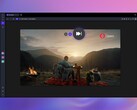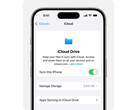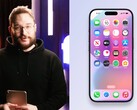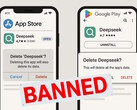Japan's Headquarters for Digital Market Competition has published its final report on competition assessment for browsers and web apps. The sweeping legislation that is part of the country's Smartphone Act requires vendors like Apple and Google to have an open ecosystem, which could be the death knell for Apple's long-standing restrictions on iOS for browser engines.
According to Open Web Advocacy, a nonprofit organization that consulted on the report, Apple now has until December 2025 to remove all browser engine restrictions from iOS and allow browsers like Firefox, Chrome, Opera, and more to use their own browser engines.
What is Apple's browser engine policy on iOS?
Apple's restrictive browser engine policy on iOS has mandated the use of the company's WebKit engine, which it uses for Safari. Historically, it has cited security and privacy concerns for not allowing alternative browser engines on their platform.
Apple says WebKit is optimized for iOS and provides a safe experience. It also states that alternate engines may fragment and dilute performance, leading to a bad user experience. It's worth noting that the absence of browser competition on iOS means Safari, their in-house product, generates significant revenue for the company.
Open web Advocates have spoken against Apple's soft ban, arguing these policies restrict user choice and hinder the development of secure alternatives. Under the Digital Markets Act (DMA) by the European Union, Apple was forced to remove certain restrictions.
Despite the DMA, Apple continues to resist offering alternatives to WebKit by making it really difficult to port engines like Blink (Google) and Gecko (Mozilla) over to the platform, often citing vague security and privacy concerns.
What does Japan's Smartphone Act dictate?
The new guidelines make it explicit that vendors cannot artificially hinder alternative browser engines by using "unreasonable technical restrictions on individual app providers while allowing them to adopt alternative browser engines," or place "financial burdens on individual app providers."
It also requires vendors to eliminate any outright bans that might hinder competition on their platforms. The Mobile Software Competition Act (MSCA) prevents vendors from blocking OS functions or locking out competition's access to these features.
The MSCA mandates that choice screens be presented to the user for browsers and other software, and Apple will be required to display these "promptly after first activation." The MSCA will come into effect in December 2025, forcing Apple to open its ecosystem to third-party browser engines.
This is, of course, subject to Apple's resolve.



















